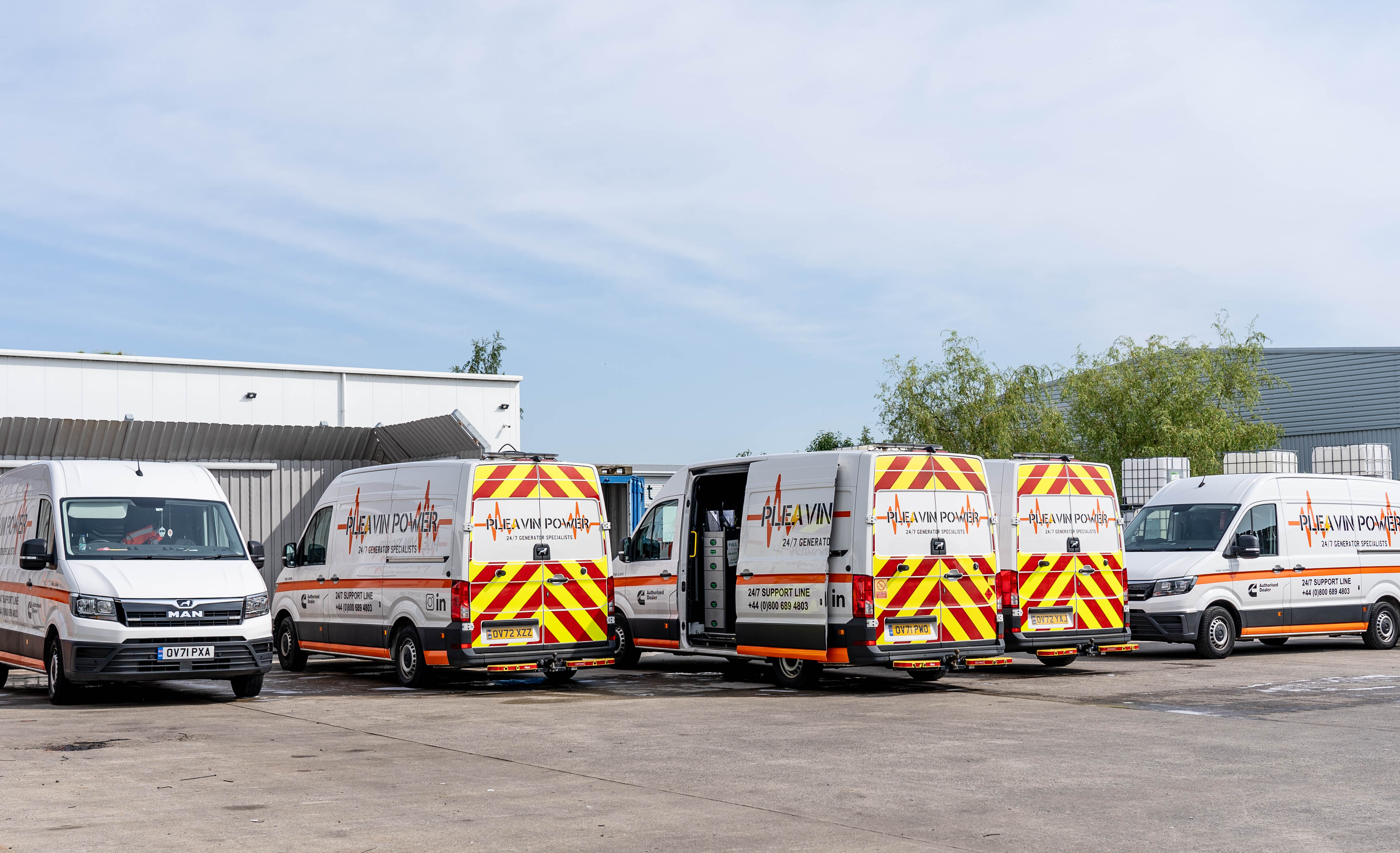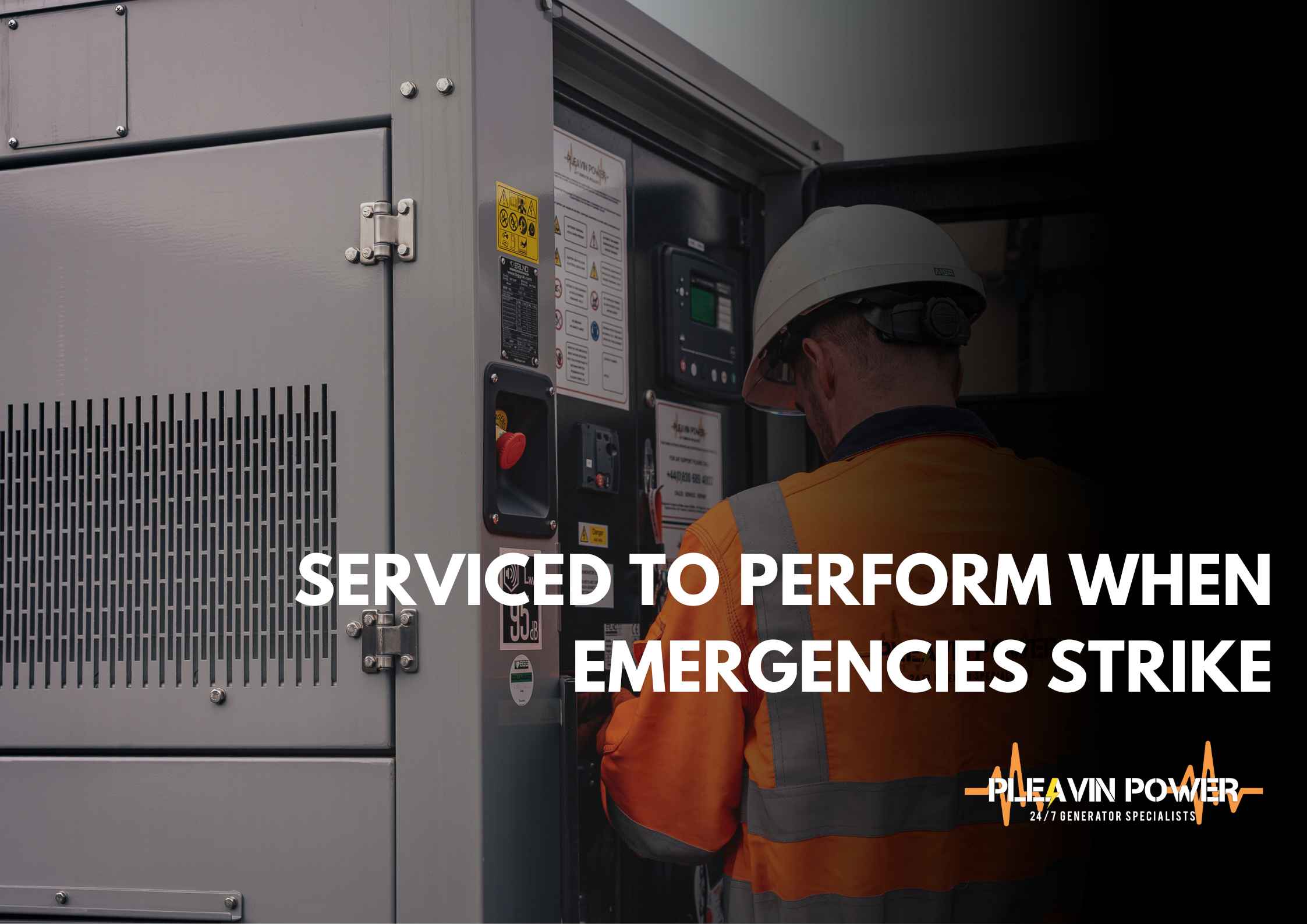Power cuts and electrical disturbances can cause major disruptions, from losing unsaved work to damaging expensive equipment. An uninterruptible power supply (UPS) is a backup system that keeps power flowing when the main supply fails. It bridges the gap between power loss and backup generators kicking in or systems shutting down safely.
UPS systems protect against power surges, voltage drops, and short outages that could otherwise damage sensitive electronics. They are commonly used in data centres, hospitals, manufacturing plants and anywhere else where continuous power is critical. With different types of UPS systems available, choosing the right one depends on the level of protection needed.
As experts in UPS systems, we operate on larger-scale scenarios. Data centres, utilities, and railway networks fall into our remit, and all of these have high power demands. Still, it’s good to know the full range out there so you can find the right option for your needs.
Three Kinds of UPS Systems
Not all UPS systems work the same way. Some offer basic backup power while others provide continuous protection against fluctuations and outages.
There are three main types of UPS: standby, line-interactive and online. Each has its own strengths, from simple battery backup to full-scale power conditioning.
Standby UPS
A standby UPS, also known as an offline UPS, is the most basic version of this system. It remains idle until a power issue is detected when it quickly switches to battery backup. This transition happens in milliseconds, ensuring that devices stay powered long enough for mains electricity to be restored or for equipment to be safely shut down.
Standby UPS systems are best for small offices and low-power applications. They offer protection against short-term outages and minor voltage fluctuations. However, because of the brief switch-over time they are not suitable for highly sensitive equipment, or for widescale power use situations often seen in larger businesses or organisations.
Line-Interactive UPS
A line-interactive UPS provides better power conditioning than a standby system. It continuously regulates voltage levels to protect against spikes and dips in power which makes it a good choice for environments with unstable electricity supplies.
Unlike a standby UPS, a line-interactive model adjusts the voltage without switching to battery power. This reduces battery wear, extending the lifespan of the unit. When a complete power cut happens, the system seamlessly switches to battery mode, keeping equipment running without interruption.
This type of UPS is commonly used for businesses using network equipment, and commercial office spaces. It provides more robust protection than a standby UPS while remaining cost-effective thanks to its voltage adjustments.
Online Uninterruptible Power Supply
An online UPS, also called a double-conversion UPS, provides the highest level of power protection. It continuously converts incoming power to DC and then back to AC, ensuring a clean, stable power supply regardless of issues with the mains electricity.
Because power is always being processed through the system, there is no switch-over time when an outage occurs. This makes it the ideal choice for critical applications like hospitals, data centres, and high-end industrial equipment that cannot afford even a brief disruption.
Online UPS systems are more expensive than standby and line-interactive models, but they offer complete protection against all types of power disturbances. This is also the type that we’d recommend to businesses for UPS installation as it helps with full peace of mind and answers near any needs for larger power-drawing installations.
Why UPS Systems Matter For Businesses
For businesses, losing power isn’t just inconvenient – it can be costly. From lost productivity to damaged equipment and data loss, an outage can bring operations to a halt. A UPS provides an essential safety net, ensuring that critical systems stay up and running and forms a solid part of a contingency plan for power outages and other potential disruptions.
Constant Power Needed For Utilities
In industries like water treatment, telecoms, and energy supply, consistent power is vital. A UPS ensures that even if the mains supply is interrupted, essential services remain operational to stop disruptions that could impact thousands of people.
Utility providers rely on UPS systems to keep control systems, communication networks, and monitoring equipment functioning during outages. Without a backup power solution, sudden blackouts could lead to service failures, delays, and safety risks.
A well-maintained UPS not only prevents downtime but also extends the life of critical equipment. Power fluctuations can damage electrical components over time, leading to costly repairs and replacements. By stabilising voltage, a UPS helps protect vital infrastructure.
Preventing Data Centre Disasters with UPS Systems
Data centres house vast amounts of critical information, making uninterrupted power essential. Even a short outage can cause data corruption, hardware failures, and massive financial losses. A UPS acts as the first line of defence against these risks.
By instantly supplying backup power, a UPS prevents sudden shutdowns that could compromise sensitive data. It also ensures servers, cooling systems, and security measures keep running until a generator takes over or power is restored.
Many data centres use online UPS systems for their ability to filter out power fluctuations and provide a steady energy supply. With businesses relying heavily on cloud storage and online services, investing in a high-quality UPS is crucial for preventing costly downtime.
Keep The Factory Going in Manufacturing
Even a short outage can have lasting effects on supply chains and delivery schedules. Manufacturing facilities depend on continuous power to keep production lines moving.
But why? Well, unexpected outages can cause machinery to stop mid-process, leading to wasted materials, downtime, and equipment malfunctions. Automation systems, conveyor belts, and robotic machinery all rely on stable power and can cause delays in production if they go without.
On top of that, voltage drops and surges can damage these systems, leading to expensive repairs
Bringing a UPS into this environment would help keep timelines on track and production running smoothly, preventing wasted products and potential damage to the machinery throughout.
UPS Maintenance Contracts & Servicing
A UPS is only as reliable as its maintenance routine. Over time, batteries lose efficiency, dust builds up, and components wear down. Without regular servicing, even the most advanced UPS can fail when it’s needed most. That’s why a proactive approach is essential to keeping backup power systems in peak condition.
Pleavin Power’s UPS maintenance contracts ensure businesses stay protected with routine inspections, battery replacements, and emergency support. Our experienced engineers catch potential issues early, reducing the risk of unexpected failures and extending the lifespan of your equipment. After all, regular checks help stabilise power output, reduce wear on components, and improve overall reliability.
Investing in professional UPS servicing minimises costly downtime, safeguards equipment, and ensures a seamless power supply. With the right UPS in place, businesses can focus on operations, knowing their backup power is in safe hands.















